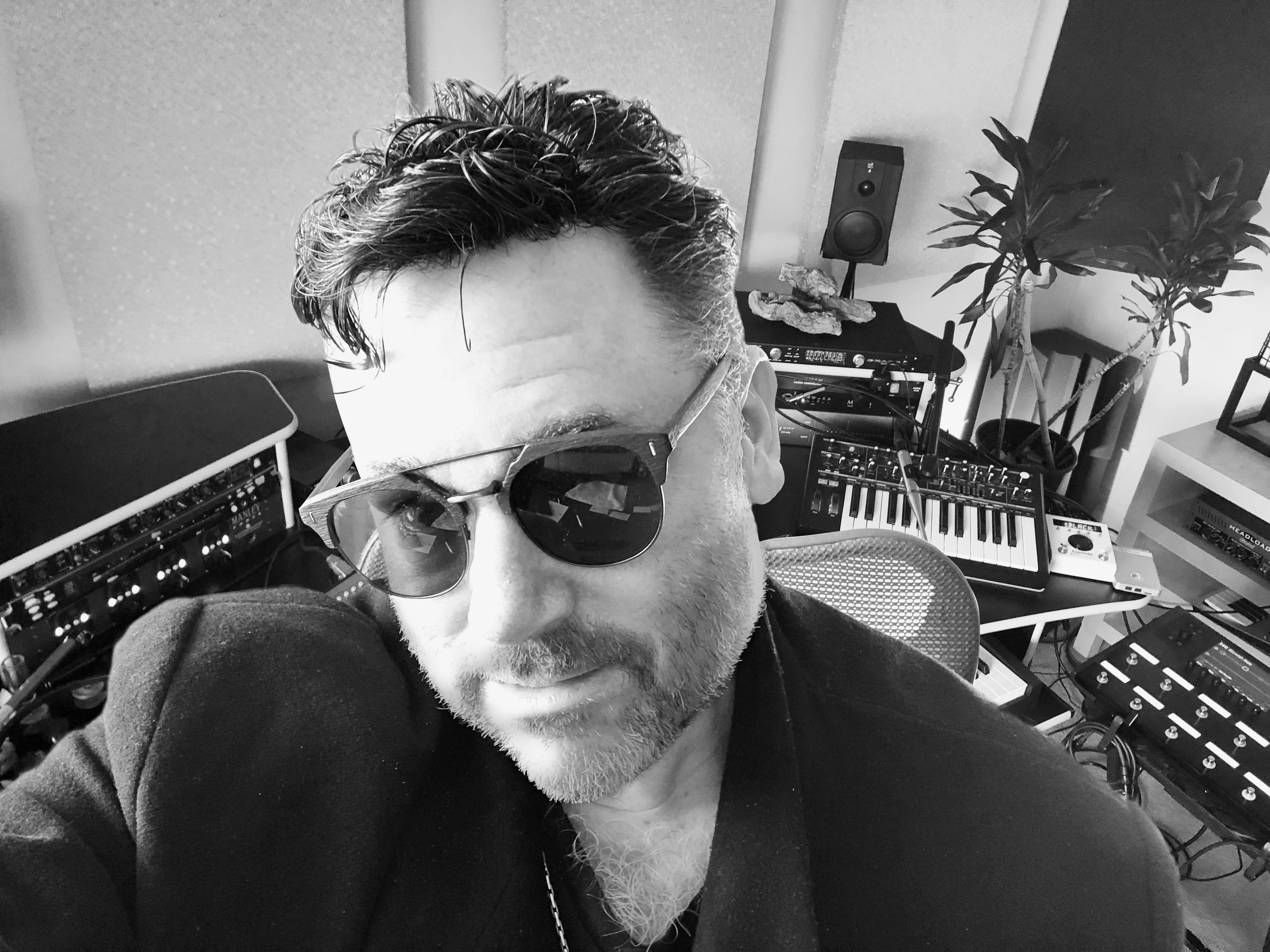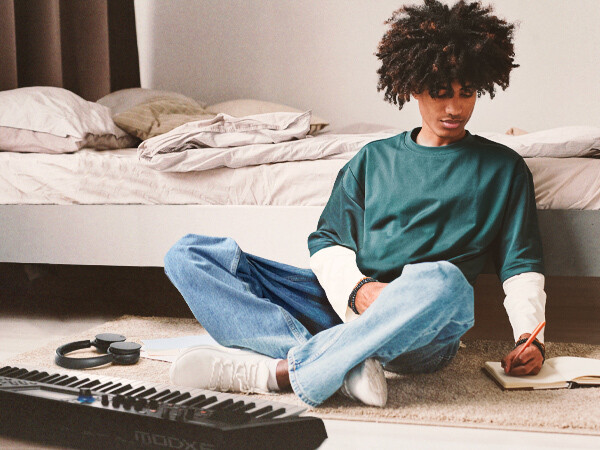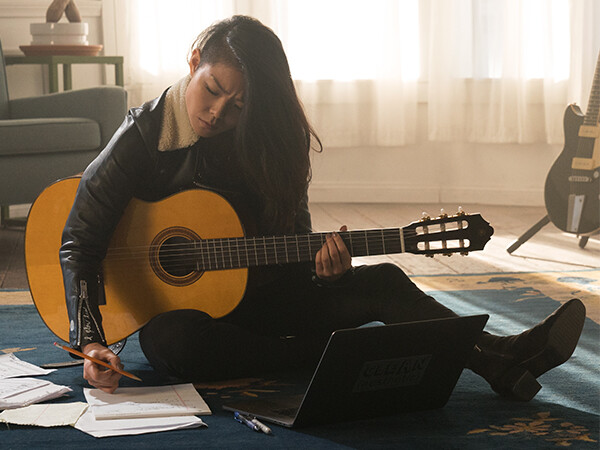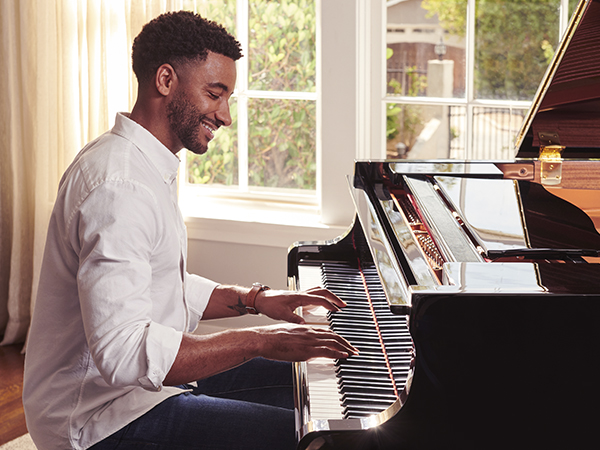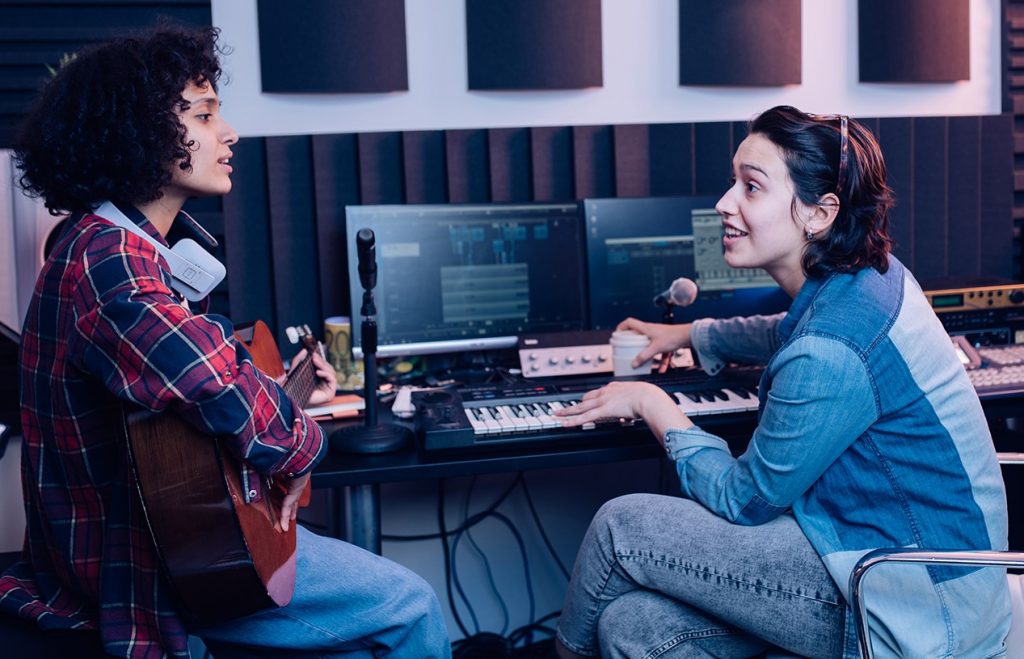Teach Your Children Well
That first instrument can lead to a lifetime of music.
I’ll never forget my first guitar. It was purchased by my parents at a small local music store in New Jersey when I was about 13 years old. I remember seeing it hanging on the wall next to all the cool records. Being inspired by KISS at the time, as well as other friends who played guitar, I decided that was the instrument I wanted to play. Who knew that little three-quarter size Yamaha FG-45 would send me on a path to a lifetime of music?
The guitar came in a cardboard box, and that’s what I kept it in. Since this was before the internet and online lessons, my parents got me a guitar teacher who came to the house every week. It was a starter instrument, so it was hard to play at first, but I didn’t care about the deep grooves the strings were carving into my fingertips. I was more interested in the musical grooves I was creating as I practiced hour after hour.
After a few years on that FG-45, it was time to step up. By then, some of my friends were already in bands playing covers of Led Zeppelin, Pink Floyd and Aerosmith tunes, and so my folks eventually gave in to my incessant lobbying and got me a beginner’s electric guitar and a small amp.
Working with the same teacher, I started moving on from the basics and began to seriously study different musical genres: jazz, blues, rock and reggae. That teacher, who now plays in a successful reggae band, is still a friend of mine, and I often sit in with his band when I see him.
My parents could clearly see (and hear) that I had a knack for the instrument, and so they stepped up again and bought me a professional model electric guitar — one that I still own and play. I have a vivid memory of how proud I was showing it to my friends when I first got it, and the fact that it still gets used in my work makes me even prouder.
Despite the fact that they were not musical at all, my parents could also see that the guitar kept me focused. But what I’m betting they did not realize at the time was that, in addition to getting better as a player, I was improving skills that would serve me well for the rest of my life.
I didn’t know it at the time, either. But it hit me all of a sudden me when I viewed the TED-Ed animation “How playing an instrument benefits your brain.” Neuroscientists, according to author Anita Collins, have determined that playing a musical instrument engages nearly every area of the brain at once — especially the motor, visual and auditory ones. As with any other workout, a structured disciplined practice in playing music strengthens those brain functions, allowing us to apply that strength to other activities. And because crafting music also involves understanding its emotional content and message, musicians often have higher levels of executive function, which is a category of interlinked tasks that include planning, strategizing and attention to detail.
As I get older, I find myself increasingly appreciative that my parents let me study guitar and supported me with instruments and lessons; they also let me rehearse in the basement with my band, and even set up a recording studio there so I could further learn my craft. You never know what doors might open when you apply yourself, and when you encourage others. For me, a lifetime of music all started with that first Yamaha FG-45.
Check out Rich’s other postings.










